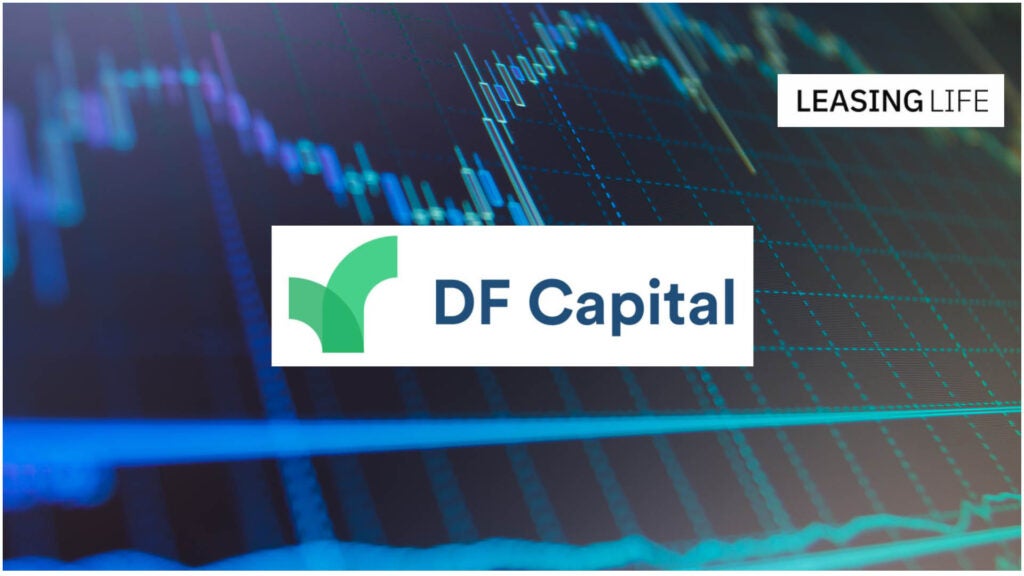
The announcement that General Electric (GE) is to sell its banking and finance arm GE Capital, including its asset finance and lending unit, caught the global leasing market’s attention.
Among the assets targeted for disposition are "most of the commercial lending and leasing segment" and all the consumer platforms, including all US and international banking assets, which represent roughly $200bn (176.5bn) in net investment.
The US company plans to sell most of its GE Capital assets by 2018 and raise $90bn to give back to shareholders as share buybacks, dividends and an exchange of Synchrony Financial shares. The new planwill also reduce GE’s share count from 10.1 billion to 8-8.5 billion.
The sale marks a major transformation of the parent company, designed to return GE to its industrial roots. "A move that will reshape the company and further the role of its industrial business," wrote GE.
The company has committed to reduce GE Capital’s share of the company’s operating earnings to less than 10% by 2018, from 42% that it held last year. GE plans for its industrial business to generate at least 90% of GE’s operating profits.
Shareholder value
How well do you really know your competitors?
Access the most comprehensive Company Profiles on the market, powered by GlobalData. Save hours of research. Gain competitive edge.

Thank you!
Your download email will arrive shortly
Not ready to buy yet? Download a free sample
We are confident about the unique quality of our Company Profiles. However, we want you to make the most beneficial decision for your business, so we offer a free sample that you can download by submitting the below form
By GlobalDataGE chairman and chief executive officer Jeff Immelt, said the decision was made because of a "commitment to allocate capital in ways that maximise shareholder value" and that GE’s industrial businesses generate higher returns on capital after more than a decade of multi-billion dollar investments in technology and portfolio changes.
Since 2008, GE has reduced GE Capital’s ending net investment from a peak of $538bn to $363bn at the end of 2014. Last year, GE Capital earnings decreased by 12% year-on-year to $7bn; while it retuned a $3bn dividend to the parent, half the amount paid in the previous year.
Managing director and global head of specialist finance and intermediaries at Lloyds Bank Commercial Banking Adam Daniels, said: "It has been quite clear that they have been reviewing their business, however, the news that they would materially downsize GE Capital was unexpected."
David Einhorn, chief executive officer of Greenlight Capital, wrote in his fund’s first quarter letter that the GE Capital sale is one of the first real successes of Dodd-Frank and that GE chose to exit the market rather than face its first stress test supervised by the Federal Reserve System.
Dodd-Frank, named after US senator Christopher J. Dodd and US representative Barney Frank, established new government agencies such as the Financial Stability Oversight Council and Orderly Liquidation Fund in order to monitor the performance of companies classified as "too big to fail".
‘Systemically important’
GE Capital was named by the regulators as ‘systemically important’ in 2013, with the Oversight Council writing in a statement: "The Council has made a final determination that material financial distress at GECC [General Electric Capital Corporation] could pose a threat to the financial stability of the United States and that GECC should be supervised by the Board of Governors and be subject to enhanced prudential standards."
Many industry professionals share the view that regulation played a significant role in the decision to sell the company, because it carries additional costs to the company.
One industry insider said: "I think in many ways the regulators have pushed the business out of the market. GE didn’t like the incredible burden on management time, cost, as well as the risk of a very large fine that can be levied for businesses that do something wrong. From a shareholders perspective, is it worth the risk now?"
The chairman of leasing consultancy IAA-Advisory Derek Soper said that GE was already facing added costs because of increased supervision.
"The more supervision that came in, in different parts of the world, the more they were sucking capital in from other parts of the business into the finance business. Unless you can leverage that stuff very highly, a manufacturer is not interested," he said.
Soper wonders whether other manufacturers would consider GE’s decision as sensible.
"Large manufacturers with significant amounts of their business being done in-house, should be asking the question, is future supervision or regulation going to demand that we ring-fence more capital?" he added.
Immelt claimed the business model for large, wholesale-funded financial companies has changed, making it increasingly difficult to generate acceptable returns.
On the other hand, Daniels doesn’t believe other manufacturers will sell their finance arms, because they have different ways to finance themselves.
"GE Capital historically used commercial paper which is short term in nature. However the assets on its balance sheet were often longer term," said Daniels. "Since the financial crisis they have used different forms of financing and reduced the amount of commercial paper. If you look at other manufacturers, they also use other techniques to finance their lending books such as raising corporate debt, securitisation or issuing long-term bonds.
Market response
Following the announcement that GE intends to sell its finance arm, the share price of the company has increased substantially. On the New York Stock exchange GE’s share price rose to $28.51 from $25.73 recorded on the previous day.
And various press reports mentioned a number of companies eyeing a sale of GE Capital’s leasing portfolio and assets.
According to Reuters, GE is in talks with US bank Wells Fargo about selling its entire $74bn US commercial lending and leasing (CLL) portfolio. The same source revealed that other firms have shown interest and that GE is also exploring the possibility of selling the US CLL portfolio piecemeal and could decide to break the business up.
Market sources are reportedly listing potential buyers including Blackstone Group LP,Mitsubishi UFJ Financial Group Inc and Apollo Global Management. Soper said of the portfolio that if GE followed a different strategy, it could have potentially earned more money from the sale than it will from the public announcement.
"I think the decision to sell off the finance arm is quite a brave one, although forecasts seems to suggest that manufacturing is going to make more money for investors," Soper said. "The other thing of concern is that such a bold statement may well reduce the price. Once you say I’m going to sell, then people’s enthusiasm fades."
Soper believes the business will be broken up. He said: "I don’t see the private equity houses wanting operating companies. I think they might want to buy portfolios, but I don’t really see any of them saying that they will take GE UK as their business. It won’t be rebadged, it will be broken.
"Banks are out of the market. They haven’t got enough capital or incentive to buy it, so it will be interesting to see where the money is coming from."
Despite the size of GE Capital, industry professionals don’t think it will create a vacuum in the market either in terms of finance or employment.
Daniels said there won’t be any shortage of funding in the market, as there are currently many lenders willing to provide access to finance to businesses.
He said: "At Lloyds Bank Commercial Banking we continue to grow our net lending in a market that is contracting. You also have plenty of private equity interest now in sponsoring businesses to try and grow as well as brokers coming back into the marketplace themselves.
GE Capital had 47,000 employees worldwide across all of its divisions in 2014, with hundreds of them in Europe.
Colin Manning, UK recruitment director at Manning Solutions, is optimistic the employees that will be made redundant will find work very quickly. He highlighted that people who were laid off from ING Lease UK and Key Equipment Finance found new roles quickly.
Manning said the reason behind the ability of people to find work soon is because the market is performing well and many companies have growth plans.
He expects that the majority of employees from GE Capital will join smaller players.
He said: "Five years ago, when the market was very bad, it was taking people six or nine months to find a new role. Now, fairly quickly, people are able to find the right role.
"The majority of people will go to relatively small businesses that have big growth plans, but obviously some of the big players have been taking on good people because they can see that there are new programmes and new business to do."
From his experience, Manning highlighted that it will be harder for some people than others to find their next job.
He said: "If you are a senior employee then it’s always going to be more difficult to move on somewhere else because obviously there might not be a position for you. But generally sales people, with credit skills, collections and operations experience will find work more easily. Obviously it also depends on location. If people are flexible about that, given their situation, then they will be able to find something pretty quickly I would hope."
There has already been a number of current GE staff who have approached recruitment agencies. Manning says he’s been approached by some GE employees from various disciplines, who want an update on the leasing employment market.
"People are quite happy to send me their CVs, initially just seeing what’s happening in the marketplace, but realising that there’s the possibility that they would have to become more proactive at some stage in the short term," said Manning.







